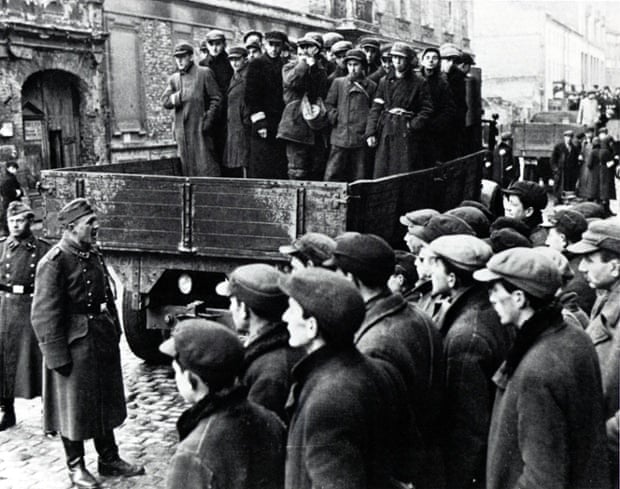by Richard J. EVANS
 The Warsaw ghetto in Nazi-occupied Poland. PHOTO/Galerie Bilderwelt/Getty Images
The Warsaw ghetto in Nazi-occupied Poland. PHOTO/Galerie Bilderwelt/Getty Images
Why are we still so obsessed with the Nazis? Hardly a day goes by without a television programme or a newspaper article about them. Movies featuring them continue to pour out of the studios, from Tarantino’s Inglourious Basterds to Polanski’s The Pianist. The Nazis’ crimes continue to haunt us. One current manifestation is the vast number of artworks they stole or forced out of the possession of their original Jewish owners; thousands of these cultural objects remain in galleries and museums across the world, waiting for the heirs of those who lost them to turn up and claim restitution. There is even still the occasional prosecution of an ex-Nazi for war crimes – only this week, the date was set for the trial of 93-year-old Oskar Groening, the “bookkeeper of Auschwitz”, for being accessory to more than 300,000 murders in the camp.
…
In the new, transnational vision that has emerged among historians in our own era of globalisation, nazism appears as an ideology drawing on sources from many countries, from Russia to France, Italy to Turkey, rather than being the culmination of exclusively German intellectual traditions, as the historians of the postwar generation argued. Racial doctrines borrowed from the French theorist Arthur de Gobineau were married to a distorted version of social Darwinism originating in Britain, antisemitism derived from Russian and French writers was fused with anti-Bolshevism imported from the Whites in the Russian civil war, the worship of violence and hatred of parliamentarism taken from Mussolini’s Italian fascist movement were joined to ideas of national reawakening taken from Kemal Atatürk’s nationalist revolution in Turkey.
Following this trend, historians have come to see the Nazi extermination of the Jews not as a unique historical event but as a genocide with parallels in other countries and at other times, not only the German extermination of the Herero tribe in the Kaiser’s colony of Namibia before the first world war, but the actions of the Turks in 1915, of Stalin in Ukraine in the early 1930s and of the Hutus in Rwanda, to name only three of the mass murders of the 20th century.
The Guardian for more
